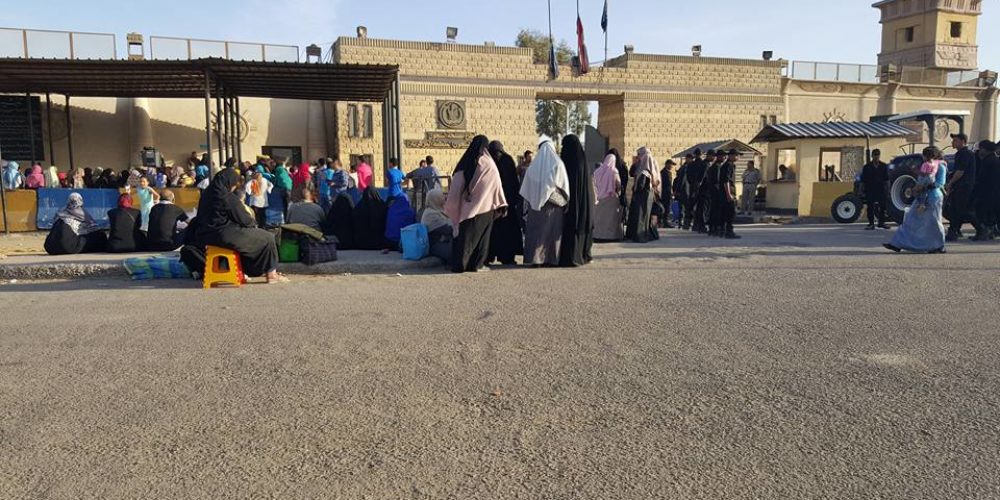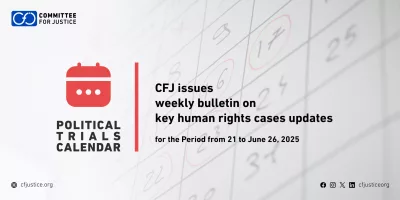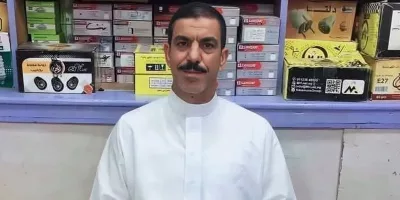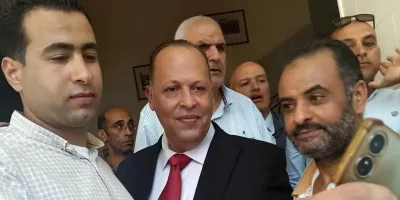The Committee for Justice has documented the torture of a detainee and mass violations of human rights at the Minya 1 penitentiary in southern Egypt, in the latest evidence of abuses against political prisoners in the country and the widespread cases of torture with impunity.
CFJ has received leaked letters from the prison, which have been verified as authentic by CFJ. On February 9, 2023, a detainee at the Minya 1 penitentiary, Badawi Muhammad Toukhi (38 years old), was severely beaten on his back, thigh and buttocks, with his hands and feet tied and with his face on the floor. Muhammad has been detained for eight years and is serving a life sentence after military tribunal no. 221.
According to the leaked messages, it was also revealed that one of the officers inserted a plastic stick into the anus of Toukhi in an attempt to humiliate him, and forced him to drink water containing cleaning substances which caused him to vomit continuously for a full hour. Additionally, all of his personal medications were confiscated and his textbooks were burned. Those torture sessions continued until March 5th, 2023.
All of these inhumane practices against Toukhi caused severe damage to his eyesight after his medical glasses were broken. He was also subjected to sexual assault with bleeding in his anal opening, as well as hearing loss in his left ear due to repeated beatings, along with severe pain in his legs, back, and spine, and chest pain due to being tied to the grill (“one of the torture methods”) and beaten on the chest, and pain in his testicles due to continuous electrocution.
Ahmed Mefreh, the Executive Director of Committee for Justice, commented on the case by saying that “the spread of leaked messages from inside prisons in Egypt marks a new phase in the methodology of torture in Egypt, consolidating torture and normalising it as a method of dealing with prisoners.”
Mefreh had previously noted, during a seminar on the sidelines of the 52nd regular session of the United Nations Human Rights Council, about systematic torture in Egypt and its role in consolidating the policy of impunity, that the Egyptian authorities deal with torture inside detention centers and prisons through denial, ignorance, and punishment, emphasizing that this approach was the basis for the impunity of those who committed these crimes among members of the Egyptian police, intelligence agencies, and army.
The leaked messages also revealed that the Minya 1 prison suffers from overcrowding, where the number of detainees in a single cell, which is a small room not exceeding an area of 12 square meters with a bathroom, ranges from about 15 to 30 detainees. The detainees also complained about the reduction of visitation time to only 20 minutes, without consideration for the families who come from all governorates
and travel long distances to see their detained loved ones for less than half an hour per month, in violation of the Egyptian prisons regulations and the UN Standard Minimum Rules for the Treatment of Prisoners.
Therefore, the Egyptian authorities, the administration of Minya 1 prison, and the prison service in particular, should put an end to these violations and torture practices against detainees in Liman, and apply the UN Standard Minimum Rules for the Treatment of Prisoners and the Egyptian prisons regulations, and stop violating them, while providing decent living conditions for the detainees.
CFJ also demands conducting serious, transparent, and impartial investigations into the torture incident of Toukhi, identifying those responsible, and holding them accountable with the appropriate punishment, while facilitating effective compensation for the victim and providing him with the necessary medical care.
The organization also calls on UN mechanisms and the international community to exert serious pressure on the Egyptian authorities to stop their systematic policy of torturing detainees and to ensure their commitment to the international covenants and treaties they have signed, while establishing a UN mechanism for monitoring detention places and facilities in Egypt.






